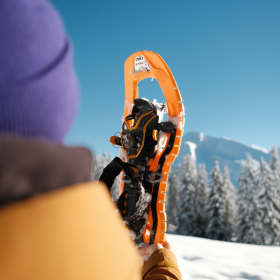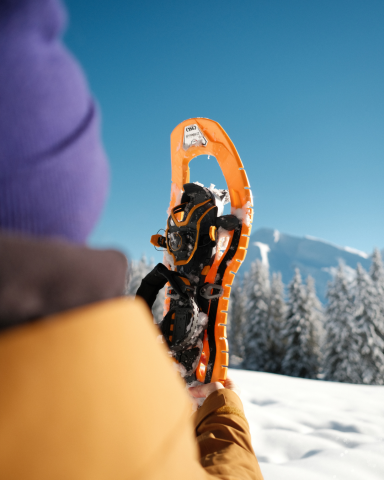
BEST GAITERS FOR SNOWSHOEING [ 2023 & 2024 ]
Choosing the Best Gaiters for Your Snowshoeing Adventures
As winter arrives and blankets the landscape in snow, it's an open invitation for outdoor enthusiasts to explore the snowy wonderland. Snowshoeing provides a unique way to enjoy the winter world, whether you're a seasoned hiker or just looking for a fun day out in the snow. However, for your snowshoeing experience to be truly enjoyable and comfortable, having the right gear is essential. Gaiters are one of those pieces of equipment that can make a big difference in keeping you warm, dry, and protected during your snowshoeing adventures. Let's see why choosing the best gaiters for snowshoeing is important !
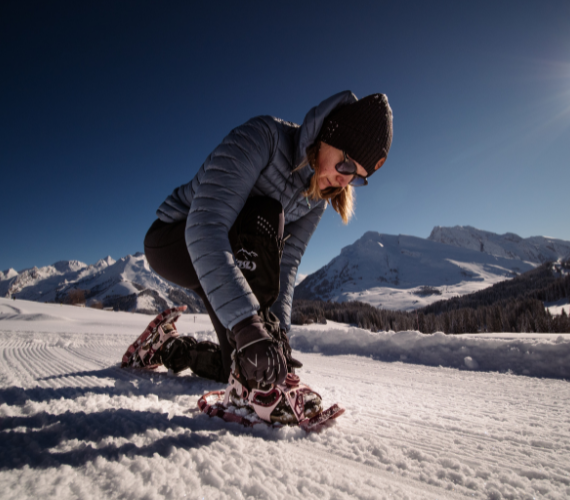
Gaiters, often underestimated in their importance, are indispensable companions for winter adventures. These protective coverings wrap snugly around your lower legs and the tops of your boots. Their primary purpose is to act as a barrier, preventing snow, water, and unwelcome debris from infiltrating your boots and socks. In particular, when the snow is deep or you find yourself navigating areas with high moisture levels, gaiters prove their worth by ensuring your feet remain comfortable and dry.
Choosing the Right Pair
Choosing the right pair of gaiters for snowshoeing is more crucial than one might initially think. Various factors should influence your decision, including the type of terrain you'll be traversing, the prevailing weather conditions, and your personal preferences. Some gaiters are purpose-built for tackling deep snow, while others are better suited for more moderate winter conditions. Well-regarded brands such as Outdoor Research, Black Diamond, and Hillsound offer a wide range of gaiter options to cater to different needs.
Gaiters Key Features to Look For
When searching for the best gaiters for snowshoeing, there are several key features to consider:
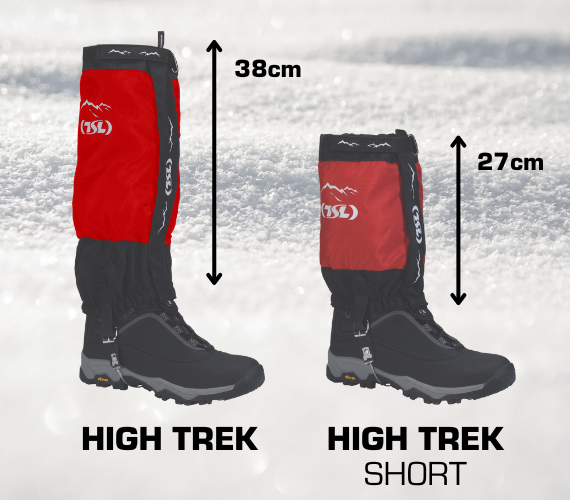
Height: The height of gaiters is crucial in determining the level of protection you need. If you're walking in areas with deep snow or are concerned about water infiltration, opting for knee-high gaiters is wise. They effectively prevent snow, moisture, and debris from entering your shoes. Shorter gaiters that cover the ankle are ideal for less extreme use and offer greater freedom of movement, although protection is reduced. The choice of height will depend on the environment in which you plan to go snowshoeing.
Material: Gaiters are typically made of nylon or similar waterproof materials. Look for a durable and waterproof fabric capable of withstanding the elements. In snowy and wet conditions, the ability to keep moisture out and maintain durability is essential. Waterproof materials such as Gore-Tex or eVent are often excellent choices for this purpose, as they provide reliable protection and long-lasting performance. When choosing gaiters, prioritize the material's ability to repel water, resist wear and tear, and maintain your comfort during your snowshoeing adventures.
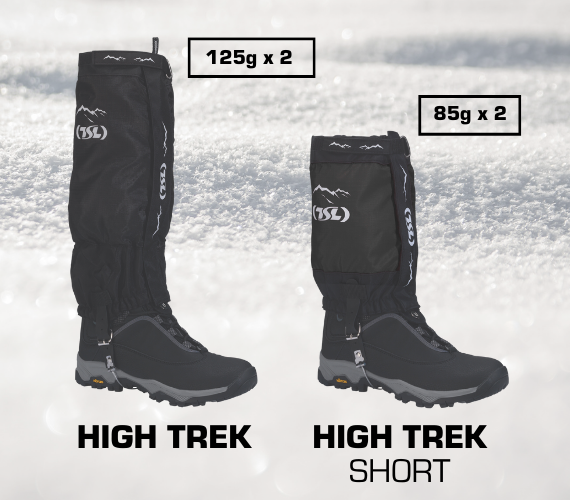
Weight: Opting for lightweight gaiters is crucial when snowshoeing. This activity can be physically demanding, and the excessive weight of gaiters can hinder your comfort and performance. Lightweight gaiters made of nylon or technical fabrics allow you to remain agile and conserve your energy for snowshoeing. They provide effective protection against snow and moisture while remaining discreet and comfortable. When choosing gaiters for snowshoeing, keep in mind that lightweight is the key to success. Your gear shouldn't weigh you down, allowing you to enjoy your snowshoeing adventures to the fullest.
Keeping Your Feet Dry
The primary function of gaiters is to keep your feet dry. This is especially vital during snowshoeing, as wet feet can quickly lead to discomfort and, in severe cases, frostbite. Gaiters function as an effective barrier, creating a seal around the top of your boots to prevent snow and moisture from infiltrating. It's worth emphasizing that warm and dry feet are pivotal to your overall comfort and well-being during your winter adventures.
Advantages Beyond Snowshoeing
Gaiters are versatile accessories that can be used for various outdoor activities. They are excellent for hiking, trekking, and challenging terrain. Investing in a quality pair of gaiters can enhance your collection of outdoor gear.
In summary, gaiters are a valuable addition to your snowshoeing equipment, offering protection, comfort, and durability. With the right pair of gaiters, you can confidently tackle snowy trails and fully enjoy the magic of the winter outdoors. Explore trusted brands and read reviews to find the best gaiters for your snowshoeing adventures. Remember that keeping your feet dry and warm is essential for fully embracing the wintery outdoor world.
In Summary
In summation, gaiters emerge as a valuable piece of clothing in your snowshoeing gear collection, offering a trifecta of protection, comfort, and durability. Armed with the right pair of gaiters, you can boldly tackle snowy trails and make the most of the winter wonderland. Be sure to explore reputable brands and peruse user reviews to identify the perfect gaiters for your snowshoeing exploits. Always bear in mind that the key to relishing the enchantment of winter in the great outdoors lies in the assurance of dry, snug, and comfortable feet.
FAQ
-
Do you need gaiters for snowshoeing?
Gaiters can be highly beneficial for snowshoeing. They help keep snow out of your boots, which is particularly useful when trekking through deep snow. Gaiters also provide added protection against cold and moisture, ensuring a more comfortable and enjoyable snowshoeing experience. While not an absolute necessity, gaiters can significantly enhance your winter adventures.
-
What are gaiters for snowshoeing?
Gaiters are protective coverings worn over your boots and lower legs. They serve to keep snow, moisture, and debris out of your footwear, providing extra warmth and comfort when snowshoeing. Gaiters are especially useful in deep snow or wet conditions, as they help keep your feet and lower legs dry and your overall experience more enjoyable.
